
Here’s the monthly wrap up of everything going on at the studio…
Want to get the monthly email right in your inbox?
Join our safe subscribe monthly mailing list:

Here’s the monthly wrap up of everything going on at the studio…
Want to get the monthly email right in your inbox?
Join our safe subscribe monthly mailing list:
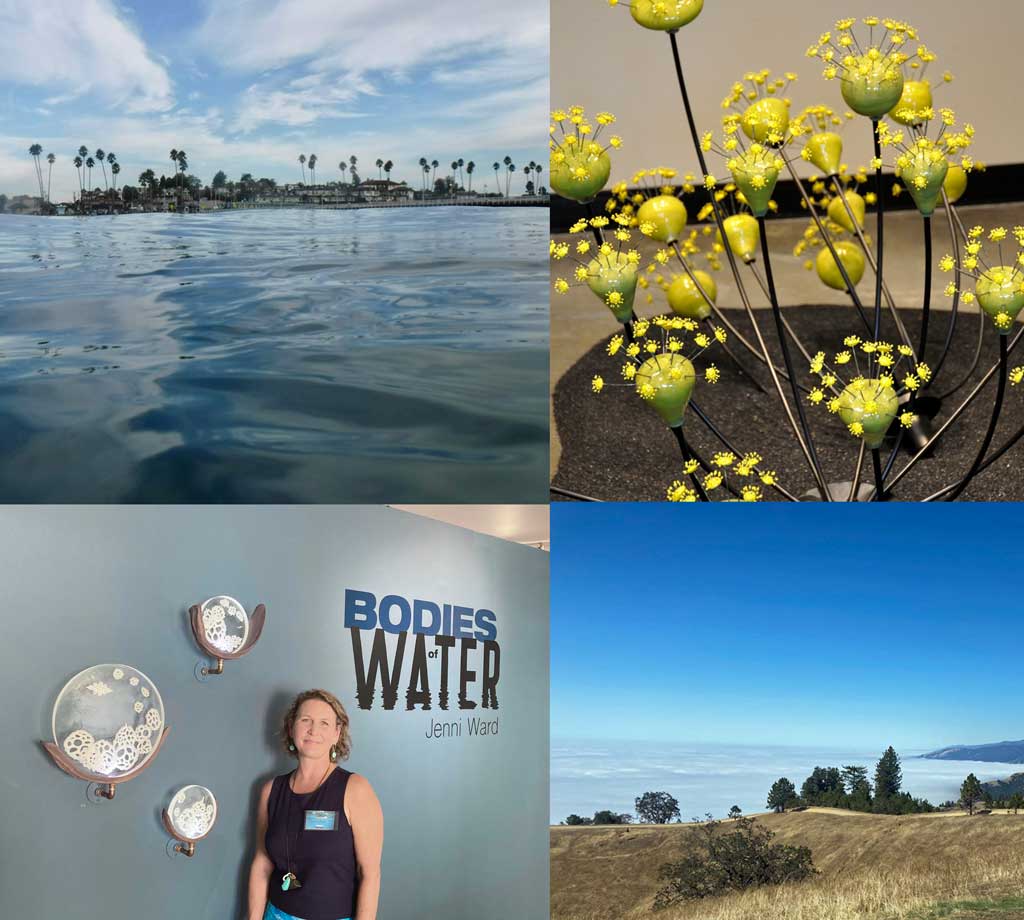
I’ll be taking the final weeks of the year off from writing blog posts as I let this year settle and start exciting plans for 2023 but I wanted to take the time to do a quick look back at all that has happened this year.
I participated in 6 exhibitions including one solo show and one show I co-created and co-curated. I created a large public art piece and have another in the works. I made ~literally~ thousands of porcelain pieces inspired by plankton and I still have a million ideas for more. And on a personal note, I swam dozens of miles this year in the open ocean, and hiked more miles than I could keep track of. Working hard, playing hard. I can’t wait to see what next year brings.
As a reminder, the online shop is always open so take a peek to find something special for yourself or your art loving friends and family. And once again, thank you for your support, it takes a village to raise an artist and I’m grateful that you are my village. Happy Happy, Merry Merry.
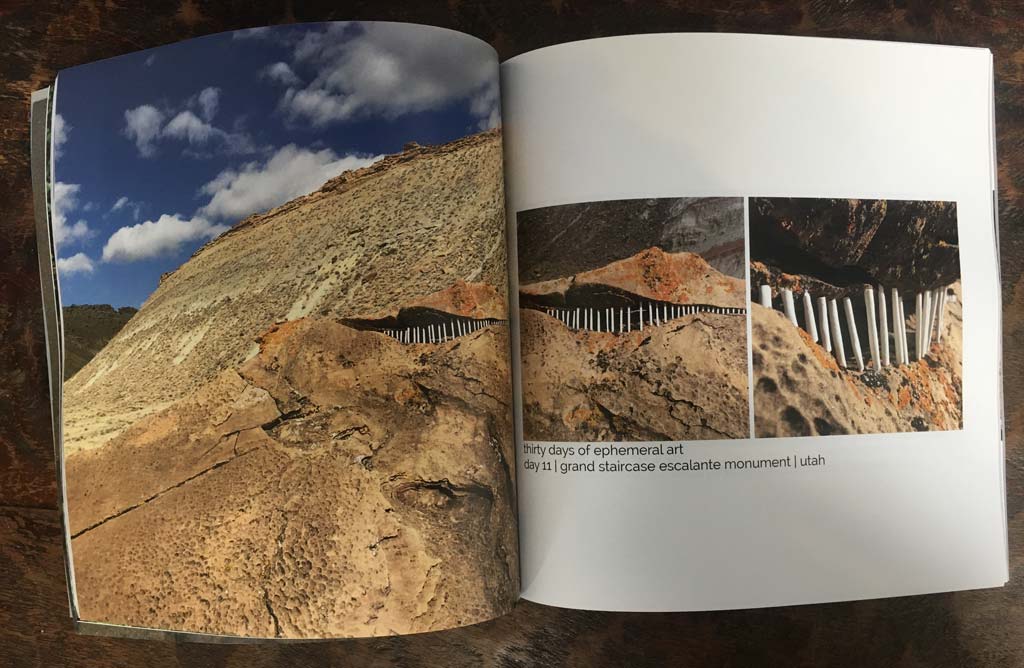
Still need a gift?
My three art books, ‘A Relationship with Earth’, ‘Where Art & Nature Meet’ and ‘Inspiration through Exploration’ are available in the online shop and catalog my work from 2009 – 2022.
The latest book ‘Inspiration through Exploration’, is a 112 page, softcover catalog with full color photos of my installations and objects spanning from 2016-2021, including 30 days of ephemeral installations made during the initial quarantine.
Book Bundles are on SALE too! 3 books for only $60 or individually sold for $25 each.
A few people were worried about keeping their sculptures clean and were surprised to find out how I do it. This video shows two wet methods of cleaning your ceramics and I find them to be the most efficient. Either under the faucet at the sink or with the garden hose. Don’t worry ceramic is tough, it can handle it. Then set your pieces on a thick towel to air dry and your art will be sparkling again.
But if you want a dry method, I’d recommend a dry fluffy paintbrush as a great way to remove larger debris like leaves and cobwebs. Then hit them with some canned air to get all the dust off – easy peasy. Hope this helps keep your collection shining!
After a successful 10 week run, this past Sunday we deinstalled Bodies of Water. Hours and hours of installation was deinstalled and packed up in just a few hours- always amazing to see how fast it all comes down. Thanks so much to everyone who came out to see the show and especially to those that purchased pieces!
If you missed the show, please be sure to check out images of it here. Work from this show can still be purchased in the online shop.
This week, outside the studio…
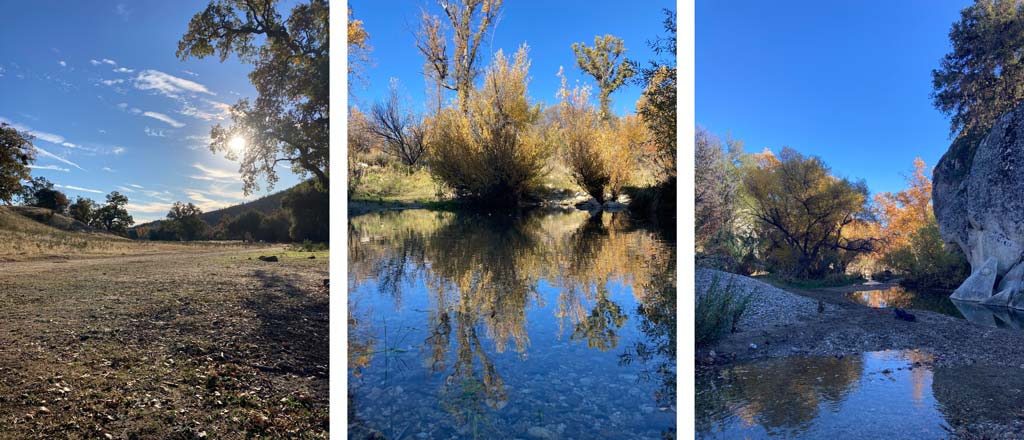
I wanted to add in another adventure photo here, but to be honest, we’ve been hunkering down with the cold, rainy days. I also haven’t been in the ocean in quite awhile too… but summer’s coming right??
The Outside Scoop is a weekly blog series that shares a little bit of what’s going on in my life outside of the studio. Please feel free to leave comments, I look forward to chatting with you here!
A selection of prints from the In the Field ephemeral installations are available for sale. These are printed on aluminum and have a floating metal mount on the back for a clean and modern display. Perfect for the art + nature lover on your list!
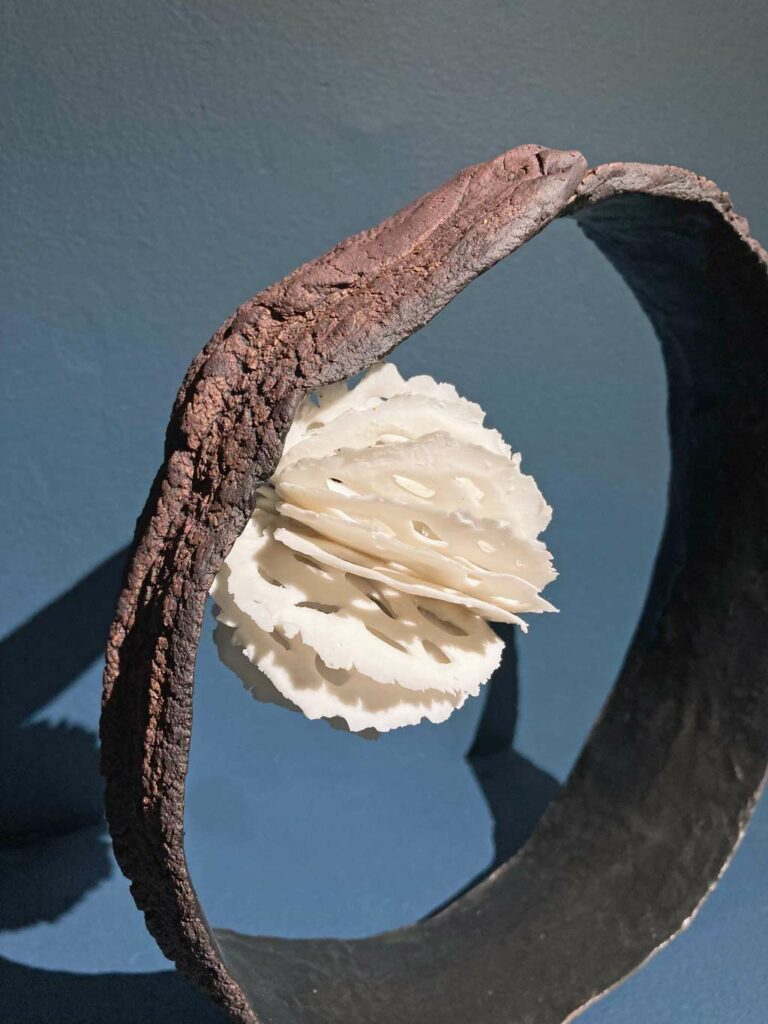
Here’s the monthly wrap up of everything going on at the studio…
Want to get the monthly email right in your inbox?
Join our safe subscribe monthly mailing list:
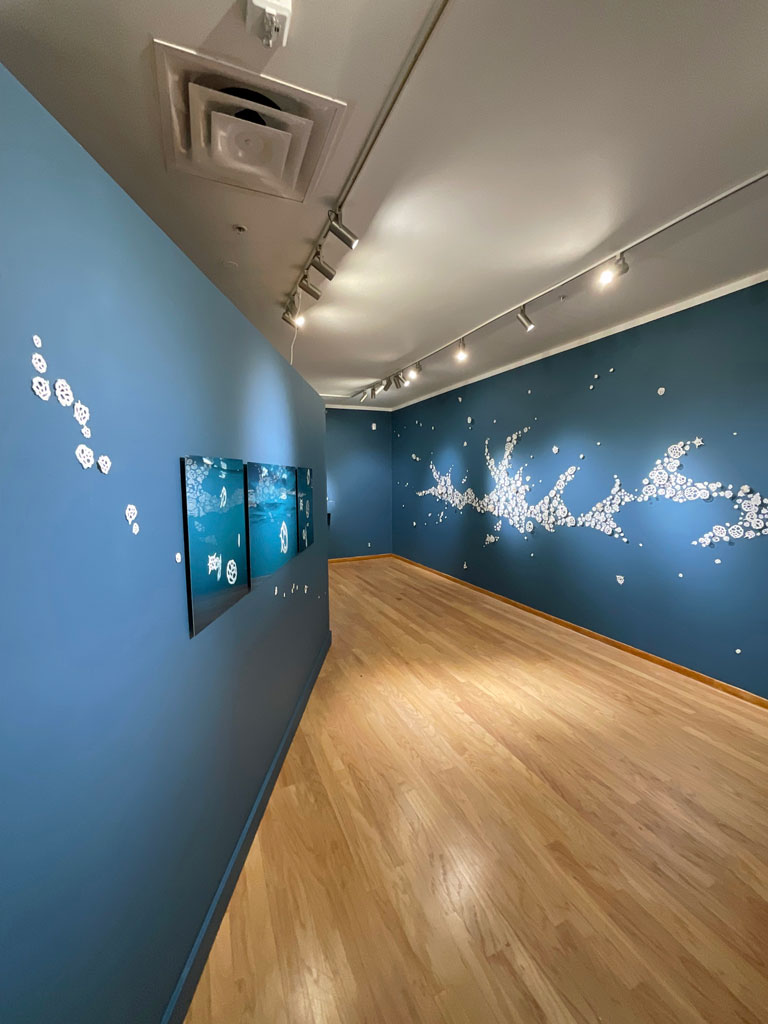
This Art + Science based exhibit will sadly conclude this coming Saturday but there is still time to check it out! Best times to be up on the hill and get parking are Thursday evenings or Saturdays. Thank you to everyone who has made it up to see the show!
Eloise Pickard Smith Gallery | University of California Santa Cruz
September 20 – December 3, 2022
Gallery Hours: 12 – 5 Tues, Wed, Fri, Sat & 1:30 – 7 Thurs
A parking pass can be acquired from the kiosk at the Bay St. campus entrance or you can use the Parkmobile app. Click here for a map.
To purchase work from this exhibit: SHOP HERE
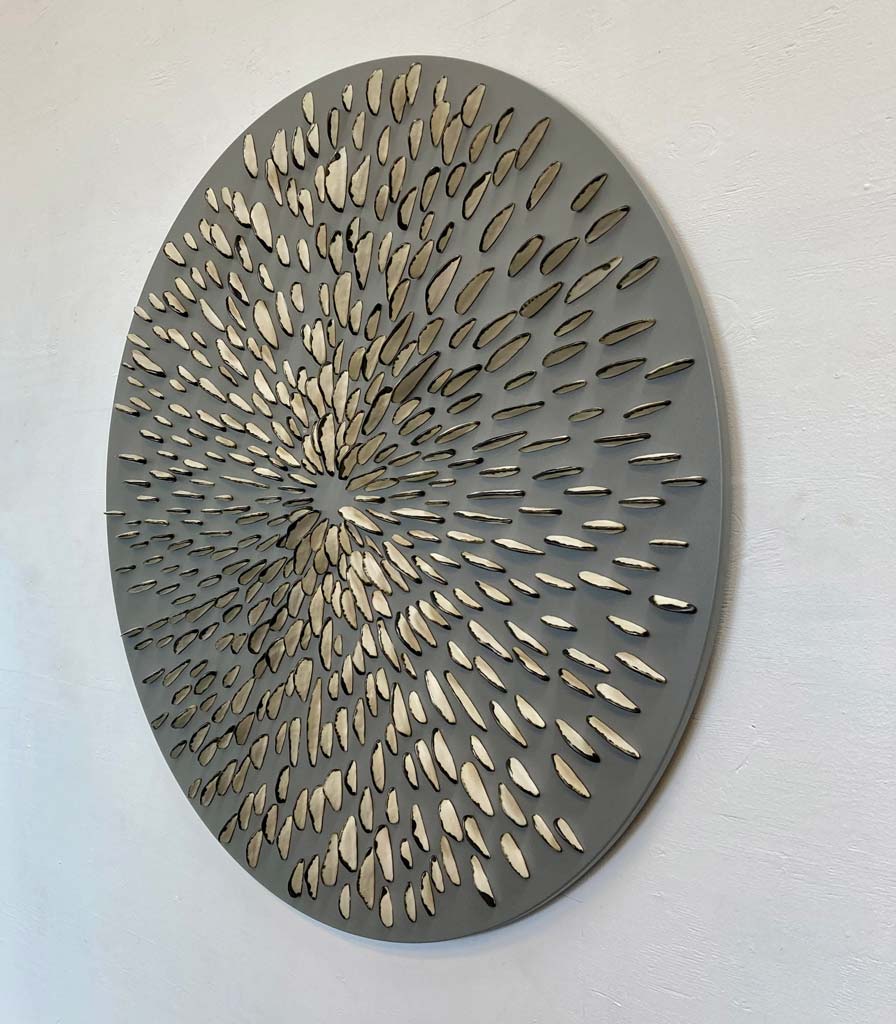
This piece Spore Patterns from the Lichen Series originally debuted at the Grants Pass Museum of Art exhibit; ‘where art & nature meet’ as a site specific wall piece. Afterwards, all four hundred+ parts stayed in a box for a few years while I figured out what to do with them.
During this past years Open Studios event, this installation reemerged from the depths and onto the wall as an engaging, sometimes eye-tricking single piece. Your perception of the piece changes as you move around it and when the light moves, it plays with the sense of depth.
Inspired by shelf fungus forms, gill structures and dropping spore markings of mushrooms, this piece would be a statement in any room, and would make a striking display for a lobby or restaurant space. It is 48″ x 48″ x 3″, ceramic mounted on painted wood panel, hangs by metal cleats on the backside, $4000.
Due to shipping variations, this piece is not in the online shop, but is available for purchase and shipping as needed. Please contact me directly if you’re interested in this piece.